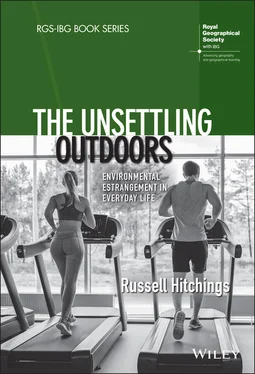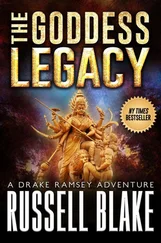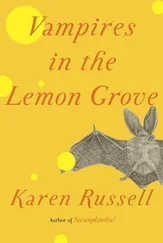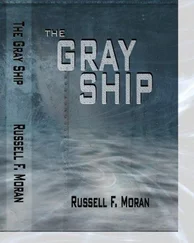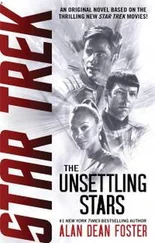Entangled and Disentangled
But there are also ways in which it takes a different path. As mentioned, one of the defining features of this work has been a commitment to looking at how ‘social’ life is never entirely social. In other words, part of the point has been to recognise how people must contend with all sorts of materials and forces in their lives, even though a great deal of previous research tended to downplay these features (with the ‘social’ sciences looking at people and the ‘natural’ scientists looking at physical processes). These geographers have been keen to demonstrate how humans are not so separate and apart from the components of the natural world as we (rather arrogantly) might have been inclined to see them. And so, to use two early landmark examples from this field of work (Whatmore 2006; Hinchliffe 2007), their aim was partly to provide a new perspective on how human life goes on. But it was also to determinedly see it differently – ultimately to provide accounts in which people are shown to deal with a variety of materials, animals and plants in ways that they may not always want. So this work was also wrapped up in an ethical project of, in effect, bringing us down to earth (Whatmore 2006) by being a little more humble about the importance and power of our species. A similar objective was to ‘animate’ the material world (Hinchliffe 2007) by belatedly seeing it as a more central character in the story of how social life goes on.
The key point is that this work sets itself the dual task of both recognising that nature’s components can act into the social world, but also, and crucially for me, encouraging us to look at things in this way. For example, one of the ways in which those working in this field have increasingly imagined how human life goes on is in terms of ‘entanglement’ (Harrison, Pile, and Thrift 2004; Jones 2009). This has become a popular term partly because the ‘anthropocene’ demands that we see ourselves as entangled (Hamilton 2017) since the idea of an external nature no longer makes much sense if we have entered a new geological epoch defined by human ‘impacts’ on the earth. Some recent examples of geographers encouraging us to see society as ‘entangled’ include Robbins (2019), who considers how this idea can help us reimagine standard scientific practice, Gibson-Graham, Cameron, and Healy (2019), who use it to question common ways of seeing manufacturing, or Morris (2019), who draws on entanglement to challenge predominant conventions of animal conservation. These researchers have been drawn to this terminology because part of their intention is to emphasise how individual people are constrained in terms of what they can do with nature’s components – that they are subject to the willingness of various lifeforms, environments and materials to bow to the wishes of the humans with which they live. There is also a nicely suitable organic image that is conjured up here – life is a project in which humans must respond to the reality of their existence amidst a thicket of other agencies.
The suggestion that the geographer’s role is one of rooting social life more fully into the material world has also influenced the people who have been studied using these ideas. Often these have been those best placed to help us develop this approach by telling us about the benefits of acknowledging their entanglements. To give three examples of recent work in this vein, we have seen some groups of English farmers recognising the benefits of recalibrating their relationship with the soil in a way that attunes them to how they should manage it in ways that are not always so controlling (Krzywoszynska 2019). Another example asks us to attend to how ‘off-gridders’ in Canada can take pleasure from being required to live within the limits of what variable weather conditions provide to them as part of a broader ethical commitment to reducing their impact on the planet by consuming less energy (Vannini and Taggart 2015). Returning to greenspace, a third example relates to a study of Australian city residents who, when asked by the government to report on the health of their local parks, wrote love letters to their favourite trees (Phillips and Atchison 2018). These researchers have given us some arresting and often life-affirming accounts of how certain groups of people are responding to some difficult environmental times. But those who are studied here are also those whose personal sentiments often chime well with a broader ethical project of seeing humankind as entangled.
I have often wondered about how, in many contexts, people seem quite happy to live some relatively disentangled lives. Indeed, they might even prefer that (in view of how being entangled instinctively seems unattractive, it is perhaps surprising to see that it has become a kind of rallying call for attempts at reimagining social life). My thinking here is that, though it has been tempting to focus our studies on those who see themselves in this way, this leaves broader questions about the rest of us open. Wider societies might not want, or have the time, to become entangled. Going back to how Bixler and Floyd (1997) noted how increasingly sanitised lives could be engendering new levels of reticence when it comes to encountering the ‘natural world’, they were effectively alerting us to how modern societies have been quietly disentangling themselves. Kaika (2004) argues something similar when she highlights how it can now feel ‘uncanny’ to be reminded that constant domestic water supply, for example, ultimately depends upon what the ‘natural world’ is able to provide. Ingold (2004) similarly points to how hard many societies have worked to achieve standards of ‘modern metropolitan’ living that are all about achieving a state in which their members are relatively oblivious to these kinds of entanglement. Many people now give little thought to the practical challenge of urban walking, for example, partly because their societies have furnished them with shoes and surfaces that help them to forget about it.
This takes us back to the extinction of experience thesis. My point now is that, whilst this area of geographical work has trained our attention onto how exactly people handle the ‘nuts and bolts’ of nature (and whilst doing so has breathed new life into the accounts that we write about how people live with the nominally ‘natural world’), less has been said here about the broader sweeps of social change that may quietly be serving to pull people away from them. This book aims to connect the two. In order to do so, it now turns to a different way of seeing human life that could help me to explore how people may be turning their backs on greenspace experience, irrespective of whether they would, in principle, like being there.
Acknowledging the Power of Practices
In order to explore how broader processes of social change might be reconciled with my interest in the detail of how human relations with ‘nature’ play out, I turned to another body of research. Here the focus was more squarely on patterns of ‘everyday life’, how those patterns are sustained, how they are experienced and how they evolve. Unlike how some of the geographers were keen on finding entanglements, this work was interested in how predictable routes are carved out for people. These were theories of ‘social practice’ and they have attracted a growing amount of interest in recent years. There are many versions, with some being preoccupied with change, others with the role of materials in sustaining practices, and others with the most conceptually sophisticated vision of social life. There are also several overlaps between these ways of imagining everyday life and those to which the above geographers were drawn (see Maller 2019). In view of that, I should itemise the components that I picked from the expanding menu of suggestions produced by this second body of work (Shove, Pantzar, and Watson 2012; Hui, Schatzki, and Shove 2017).
Читать дальше
